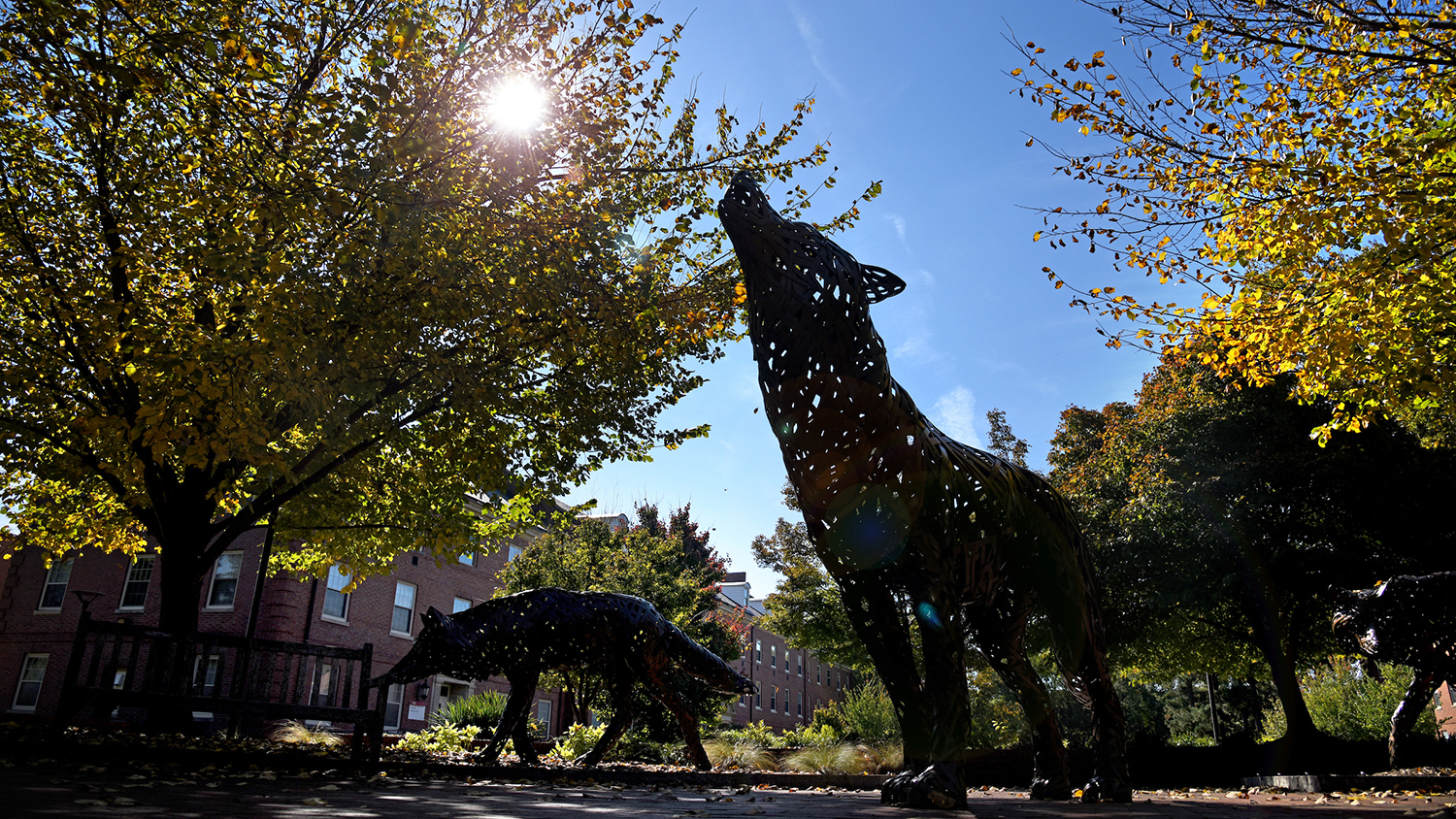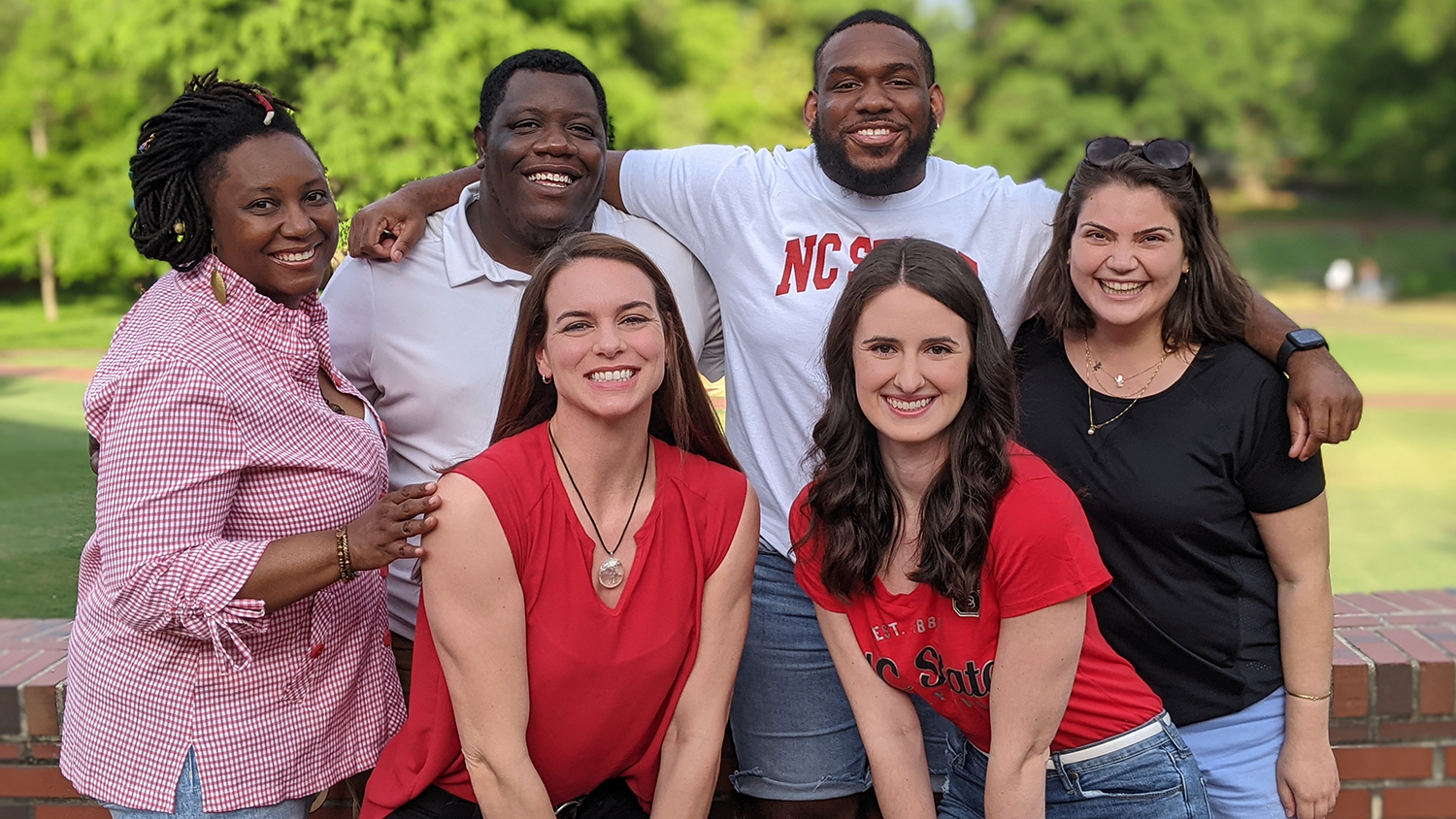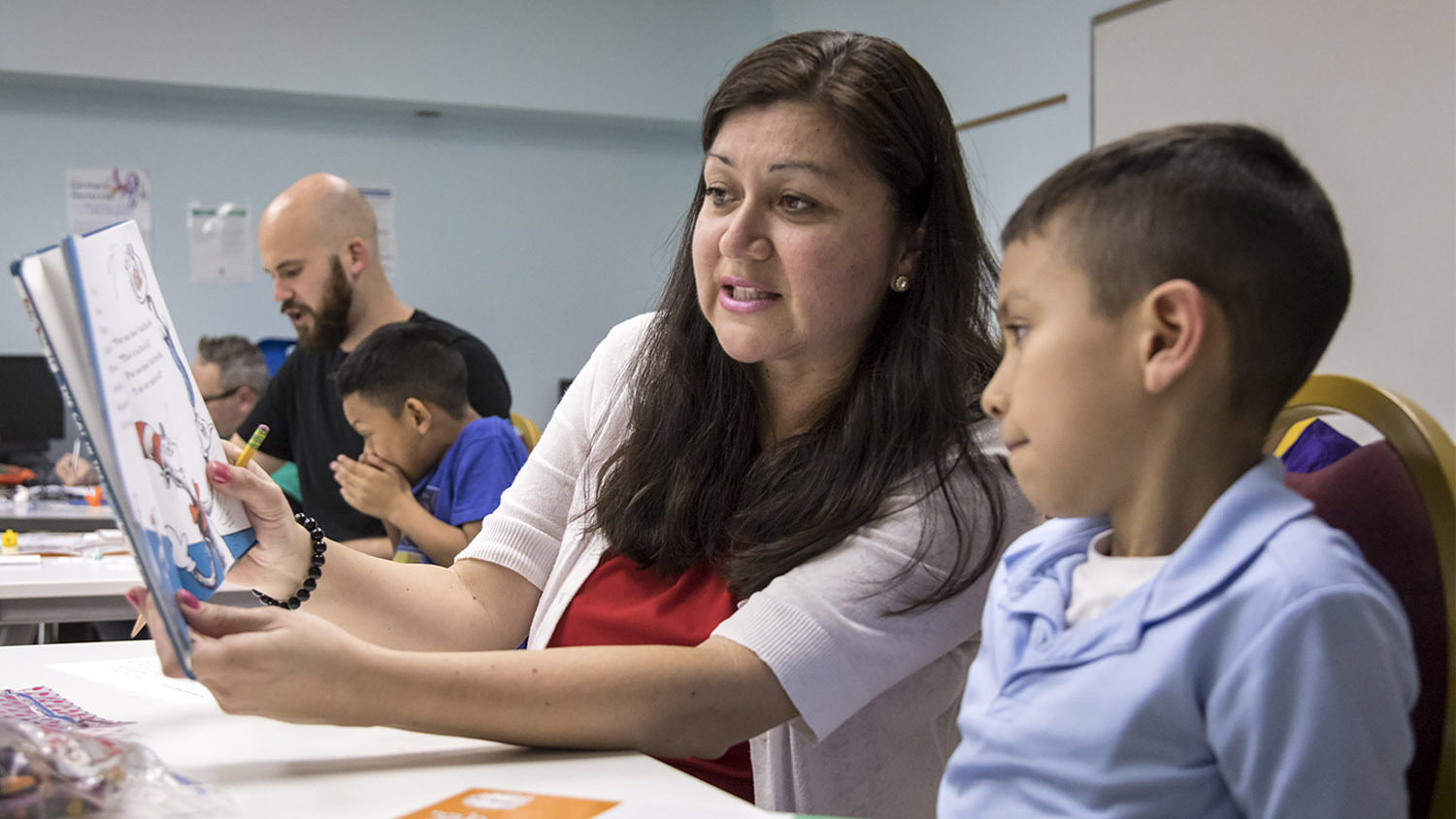Elementary Education Program Spotlight: ‘We Share a Commitment to Seeing Our Students Succeed and Ensuring Our Graduates Are Excellent Elementary Teachers’
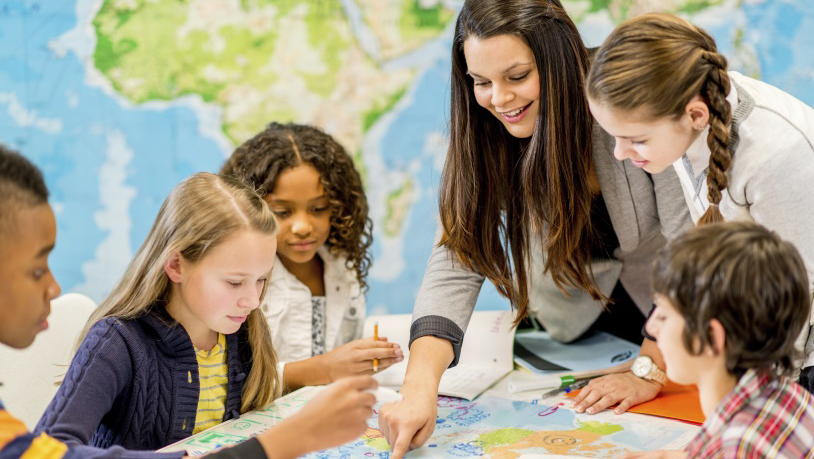
Ashley Kreider ’21 once dreamed of becoming an astronaut.
After taking a high school physics class, she realized that path might not be right for her, but she still wanted a career where she would be able to indulge in her passion for space, math and science. She decided to become an elementary school teacher, and enrolled in the NC State College of Education’s elementary education program.
The College of Education offers the only STEM-focused elementary education program in North Carolina, giving students a chance to engage in upper-level content through courses like Conceptual Physics for Elementary Education Teachers and Calculus for Elementary Teachers. These courses help future elementary school teachers to relearn foundational concepts in order to provide them with vast background knowledge to help their future students learn math and science.
“I chose the NC State College of Education because of the STEM program. I’m huge into science and math. NC State was the only college with the STEM focus and I knew that was for me,” Kreider said. “The advanced courses definitely help you, content-wise, to be more knowledgeable because elementary education is so broad, and this helps me to be able to pull from different scopes.”
The College of Education’s elementary education program began in 2006 with the goal of developing future teacher leaders with deep content knowledge and understanding of effective pedagogy; expertise in STEM-focused instruction; preparation across the full scope of literacy instructional knowledge, practices, skills and domains; and a commitment to equity.
One hundred percent of students in the elementary education program passed their edTPA licensure requirement on the first attempt during the 2019-20 academic year and the program produces graduates who rank among the most effective in the state, including several who have won districtwide and statewide Teacher of the Year awards. This includes Wake County’s Diane Kent-Parker First-Year Teacher of the Year Rachel Giddings ’19 and North Carolina Center for the Advancement of Teaching (NCCAT) Beginning Teacher of the Year Leanne Stoltzfus ’16
“We share a commitment to seeing our students succeed and ensuring our graduates are excellent elementary teachers,” said Assistant Professor of Literacy Education Jill Grifenhagen, Ph.D.
Combining Content Knowledge and Caring
Associate Professor of Science Education Sarah Carrier, Ph.D., said that helping to launch the elementary education program was one of the most rewarding experiences in her professional life and she continues to take pride in the work that graduates do once they enter the classroom.
“Our reputation is strong. Our graduates’ preparation in STEM, literacy and social studies helps them enter their first classroom as high-quality teachers and colleagues. We are so very proud of their accomplishments and for bringing their students knowledge and care,” she said.
In addition to advanced courses focused on STEM topics—science, technology, engineering and mathematics—future elementary school teachers who graduate from the College of Education take several literacy methods courses that take into account literacy research, evidence-based practices, state standards and the current context of North Carolina schools.
“We want our future teachers to learn how they can support their students’ critical thinking and empathy for others through their thoughtful and socially informed reading instruction,” said Associate Teaching Professor of Reading Education Ann Harrington, Ph.D. “We emphasize that it is the knowledgeable teacher, not the reading program, that makes a positive difference in childrens’ reading achievement. As such, we prepare our future teachers to be culturally responsive and adaptive educators who are committed to meeting the needs of and teach optimally to all children.”
Students also learn the importance of using diverse, quality children’s literature and digital tools to reach children of all backgrounds and needs, and how to teach those who need extra support in reading, including English language learners or those with special needs.
“As a teacher, you never know what kind of student is going to walk through your door, what kind of background they come from or what their learning needs are. I feel like the College of Education has really prepared me to meet these students where they’re at and feel prepared to help them learn and grow,” said Josie Thompson ’21. “The College of Education has provided me with a very culturally relevant pedagogy that I feel prepared to take into my future teaching as well.”
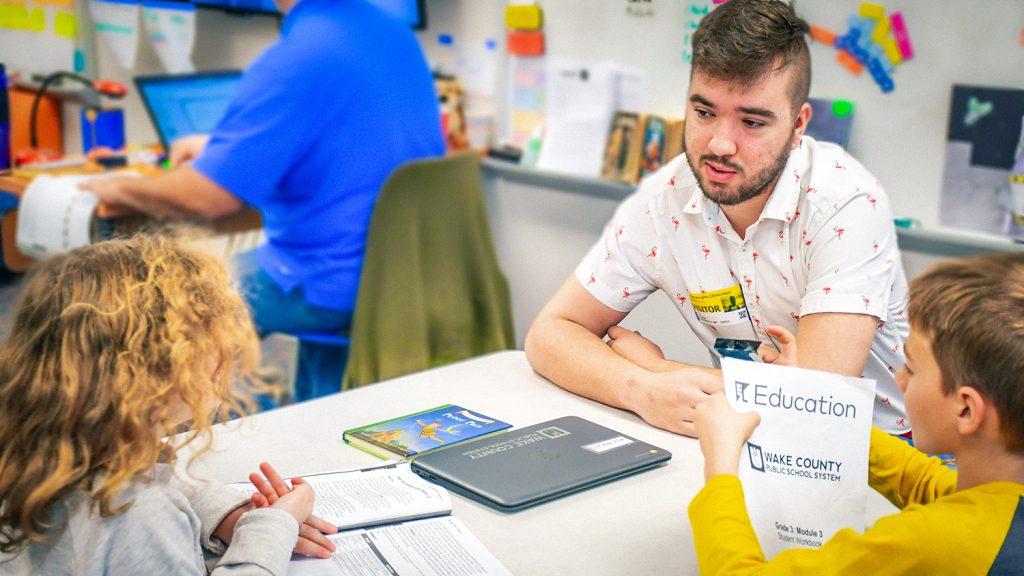
Getting into the Classroom Early and Often
The NC State College of Education helps to ensure future teachers enrolled in the elementary education program are prepared to one day lead their own classrooms with field placements that amount to more than 900 hours spent across four different classrooms in four different schools.
Beginning in the second semester of their sophomore year, pre-service elementary education teachers are paired up and placed in a K-5 classroom in one of more than 50 partner schools in Wake and Johnston counties for a field experience that is directly linked to their Introduction to Elementary Education course. During this first venture into teaching, students spend a total of three half days and one full day in the classroom, observing and assisting with instruction.
Field placements again coincide with coursework during a student’s junior year, when they are placed in K-2 classrooms during the fall semester and grade 3-5 classrooms during the spring to align with methods courses focused on classroom management and content for those grades.
Students in these placements typically work with classroom teachers for a half day once per week. They also participate in two “redirect weeks” in which they do not attend any of their regular courses and instead redirect their efforts to spending four full days working with their mentor teacher.
“I love the way that NC State’s education program does [field placements],” said Emma Wilson ’21. “Those redirect weeks are amazing weeks where we can really take what we’ve learned and apply it to the classroom and really start to see that we do know what we’re doing and we’ve gained all this knowledge.”
All of these various field placements culminate in the year-long, senior year student teaching experience where undergraduates work in classrooms part-time during the fall semester and then spend their entire spring semester in the classroom.
“This program is unique in the fact that you get to have so much fieldwork experience by the time you graduate. I was able to be in three different grade levels, I saw multiple different teaching styles and a ton of classroom strategies. I really felt prepared because of my hands-on experience,” said Amanda Brennan ’21. “There’s only so much you can learn in the classroom, but when you’re actually going out and doing it, you learn through experience and this program gives you those opportunities. They really support you to be able to become a prepared teacher.”
Placement for the student teaching experience, said University-School Partnership Coordinator Keith Walkowiak, is deliberate, taking into account the student’s grade level preference, feedback from university faculty who know each students’ strengths and the availability of mentor teachers.
“In the end, our senior student teachers have a very specific and individualized placement that has been discussed and approved by several members of the elementary education program,” Walkowiak said.
Throughout all of their field placements, students work closely with university supervisors like Betsy Knight ’07MED, who said that the real-world experiences enable pre-service teachers to implement research-based teaching strategies as they learn them and help to ensure teaching is the correct career path for them early on.
I always have thought that the best way to learn is to actually do it, and this program pairs students with teachers in elementary schools around Wake County to actually have the opportunity to apply the concepts learned in class and observe them in action.
— Sophie Moffatt ’22
Danielle Scharen ’15, ’19MED, ’23PHD — who spent several years as an elementary school teacher before returning to the College of Education where she is serving as an instructor while earning her doctoral degree — said she believes her field placements during her time as an undergraduate have led to all of her decisions and accomplishments as an elementary school teacher.
While student-teaching in a Wake County fifth grade classroom, Scharen said she was able to show school leaders what she was capable of as a science teacher. As a result, she was offered a full-time teaching job and was able to return to the same team following graduation.
“Because this program’s fieldwork was designed to give pre-service teachers extensive experience teaching and leading before entering their own classroom, I felt extremely prepared and confident when I became a teacher,” she said. “Due to the well-designed teaching opportunities, I was hired on the spot and credit that to the program’s student teaching process.”
Promoting Propinquity
When developing the elementary education program more than a decade ago, College of Education faculty decided that a core tenet would be propinquity, or a close kinship.
“An ethos of caring serves as the foundation of our work. Everyone in our elementary education program works closely with one another and we work closely with our students. We care deeply for one another and are there to help and support one another each and every day,” Harrington said. “We work as a team to support our students and design experiences to promote their current and future success as elementary school educators.”
Faculty in the elementary education program often collaborate on advising students as well as planning interdisciplinary assignments and events. In addition, they send similar messages about effective approaches for supporting student learning in all content areas, said Assistant Professor of Mathematics Education Jonee Wilson, Ph.D., who noted that many students have said they feel that classes in the program “speak to one another and tie together nicely.”
Program faculty, supervisors and adjuncts work together to contribute multiple perspectives on the work of undergraduate students, both in their university coursework and field placements, allowing them to understand each student holistically.
“Because we are a smaller program, we get the advantage of building strong relationships with the faculty and professors here in the College of Education, and you get the feeling that you are cared for and supported,” said Keisha Schmitt ’22.
Along with the caring environment comes a set of high expectations from instructors, who push students to excel through support as well as professional development opportunities.
The opportunities we are given at NC State, both inside and outside the classroom, have enriched my educational experience. The program and professors have prepared me to be an individual thinker, collaborative teammate, strong listener and lifelong learner. — Abby Edwards ’22
One element that students in elementary education have repeatedly cited as a stand-out experience that helped them feel prepared as future educators are the professional growth units (PGUs) required for graduation.
Students complete at least 4.5 PGUs prior to graduation by attending a series of events each semester that can include conferences, seminars, webinars, debates or service work. Offerings focus on a variety of topics including diversity in education, virtual teaching and technology in education, and they give students the opportunity to hear from thought leaders and practicing teachers.
“The events that the college has offered have been wonderful. The PGUs have felt less like a requirement and more of a learning experience to grow from,” said Sophie Moffatt ’22. “I’m really looking forward to some of the events offered next year that will help my transition from a college student to a full-time teacher.”
Between coursework, field placements and other opportunities, students in the elementary education program have said they feel prepared to teach to all students in their future classrooms. This was especially important for Morgan Harris ’22, who regularly watched her younger sister struggle in elementary school and wanted to be able to one day help students like her succeed.
Harris said she knew her sister could understand the material in her classes, but she often had difficulty solving problems in the “standard way” that her teachers expected. Her time at NC State has helped Harris to learn multiple different methods for working with children who want to think “outside the box” like her sister.
“When I go into my future classroom, I don’t want my kids to feel stuck or feel less than another student just because they can’t do an equation fast enough. This program makes sure that future educators know how to teach multiple different ways, to have different outlets,” Harris said. “I think they truly equip you to be an effective elementary teacher. They’re giving you everything they have because we’re, in turn, bringing it back to these future generations and these kids.”
- Categories:
